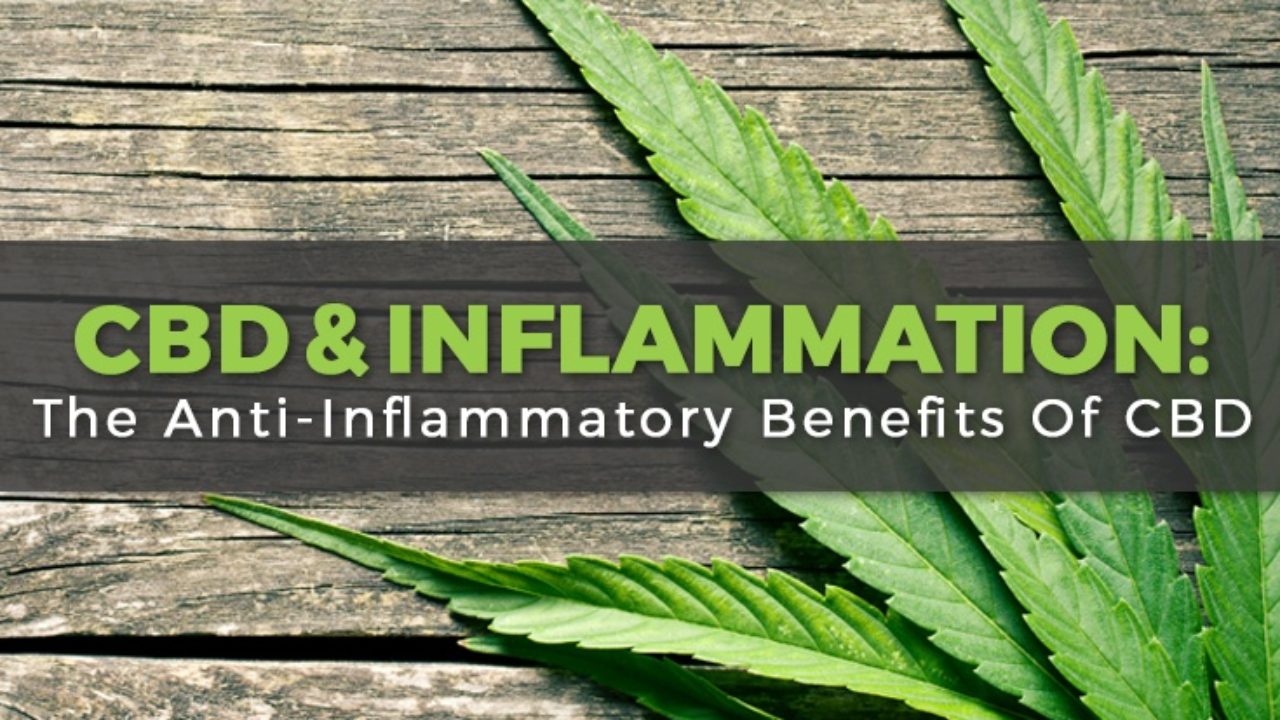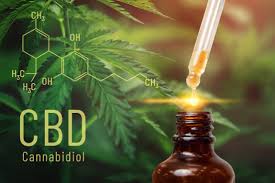Many individuals seek alternative methods to manage their health conditions in today’s fast-paced world. One such condition that has gained significant attention is Attention Deficit Hyperactivity Disorder (ADHD). ADHD affects people of all ages, making it a prevalent societal concern. Traditional treatment options, medication, and therapy have been the go-to solutions for managing ADHD symptoms. However, with the rise of natural remedies, there is growing interest in exploring the potential benefits of CBD for ADHD.
Overview of CBD and ADHD
CBD, short for cannabidiol, is a compound derived from the cannabis plant. Unlike THC (tetrahydrocannabinol), CBD is non-intoxicating and does not produce a “high” effect. It is important to note that CBD products are typically derived from hemp, which contains very low levels of THC. This means CBD offers the potential therapeutic benefits without the psychoactive effects associated with marijuana.
ADHD is a neurodevelopmental disorder characterized by symptoms such as inattention, hyperactivity, and impulsivity. It affects children and adults, often leading to difficulties in various aspects of life, including work, school, and relationships. Traditional treatment options for ADHD include stimulant medications, behavioral therapy, and educational support.
In recent years, there has been a growing interest in exploring CBD as a natural alternative for managing ADHD symptoms. Research suggests that CBD may benefit individuals with ADHD, offering a new avenue for empowerment and improved quality of life. However, it is essential to understand the science behind CBD and its potential effects on ADHD before considering its use.
In the following sections, we will delve into ADHD and CBD, exploring the condition, the compound, and the research that supports its use. We will also discuss the different forms of CBD products available, dosages, safety considerations, and the legal status of CBD. By the end of this article, you will have a comprehensive understanding of CBD for ADHD and be equipped with the knowledge to make informed decisions about your health journey. Let’s embark on this empowering quest together!
Understanding ADHD
ADHD, short for Attention Deficit Hyperactivity Disorder, is a neurodevelopmental condition affecting children and adults. It is characterized by persistent inattention, hyperactivity, and impulsivity that interfere with daily functioning and social interactions.
ADHD is a complex disorder that can manifest in various ways, making it challenging to diagnose. Individuals with ADHD may struggle to focus, organize tasks, and control their impulses. They may also exhibit restless behavior, have difficulty sitting still, and often interrupt others during conversations.
Common symptoms of ADHD can be categorized into two main groups: inattention and hyperactivity/impulsivity. Inattentive symptoms include difficulty staying focused, being easily distracted, forgetfulness, and frequently losing belongings. On the other hand, hyperactivity/impulsivity symptoms encompass excessive talking, fidgeting, difficulty waiting their turn, and a tendency to act without considering the consequences.
In traditional treatment options, the most common approach involves a combination of medication, behavioral therapy, and lifestyle modifications. Medications such as stimulants and non-stimulants are often prescribed to help manage symptoms and improve focus. Behavioral therapy, including cognitive-behavioral therapy (CBT) and social skills training, aims to teach individuals with ADHD coping mechanisms and strategies to enhance their daily functioning. Additionally, making lifestyle changes such as establishing routines, creating organized environments, and incorporating regular exercise can positively impact managing ADHD symptoms.
While these traditional treatment options have proven effective for many individuals, there is a growing interest in exploring alternative approaches. One such approach gaining attention is using CBD (cannabidiol) as a potential treatment option for ADHD. CBD is a naturally occurring compound in the cannabis plant that does not produce the psychoactive effects commonly associated with THC (tetrahydrocannabinol). It offers a range of potential therapeutic benefits without the mind-altering properties.
In the next section, we will delve into CBD and how it works in the body, shedding light on its potential role in managing ADHD symptoms. Stay tuned!
What is CBD?
Definition and Origin
To fully grasp the potential of CBD for ADHD, it is essential to understand what CBD actually is. CBD, short for cannabidiol, is a naturally occurring compound in the cannabis plant. Before any misconceptions arise, it’s important to note that CBD is non-intoxicating and does not produce the euphoric effects commonly associated with its cousin, THC.
CBD has gained significant popularity recently due to its potential therapeutic benefits. It has been widely studied for its effects on various conditions, including anxiety, pain, and epilepsy. The origin of CBD can be traced back to ancient civilizations, where it was used for medicinal purposes. However, only recently has scientific research shed light on its potential therapeutic applications.
How CBD Works in the Body
To understand how CBD might benefit individuals with ADHD, it is crucial to comprehend how it interacts with the body. Our bodies have an intricate system called the endocannabinoid system (ECS), which plays a vital role in regulating various physiological processes, such as mood, appetite, and sleep.
CBD interacts with the ECS by influencing its receptors, known as CB1 and CB2 receptors. These receptors are found throughout the body, including the brain. By interacting with these receptors, CBD may modulate neurotransmitter activity, reduce inflammation, and promote overall balance within the body.
Additionally, CBD has been found to increase the levels of anandamide, a naturally occurring cannabinoid in the body often referred to as the “bliss molecule.” Anandamide plays a crucial role in mood regulation and is thought to contribute to the feeling of well-being.
While the exact mechanisms of how CBD works are still being studied, researchers believe its interaction with the ECS and other molecular targets may contribute to its potential therapeutic effects.
The next section will delve deeper into the existing research and studies surrounding CBD for ADHD. Stay tuned!
CBD, an intriguing compound derived from the cannabis plant, holds immense promise in alternative medicine. Non-intoxicating and distinct from THC, CBD has been extensively studied for its potential therapeutic benefits. Understanding how CBD functions within the body is crucial to comprehending its effects on conditions such as ADHD. By interacting with the endocannabinoid system (ECS) and influencing neurotransmitter activity, CBD may modulate various physiological processes and contribute to a state of balance. Furthermore, CBD’s ability to increase anandamide levels, often called the “bliss molecule,” may affect mood regulation. Although the exact mechanisms are still being explored, CBD’s potential as a therapeutic option for ADHD remains an active research area.
CBD for ADHD
When it comes to exploring alternative treatment options for ADHD, CBD has emerged as a topic of interest. Research and studies are shedding light on the potential benefits of CBD in managing the symptoms of ADHD, offering hope to those seeking alternative solutions.
Research and Studies
While the research on CBD specifically for ADHD is still in its early stages, preliminary findings are encouraging. Several studies have explored the effects of CBD on various aspects of ADHD, such as hyperactivity, impulsivity, and attention span. These studies have shown promising results, suggesting that CBD may positively impact ADHD symptoms.
In one study published in the Journal of Psychopharmacology, researchers found that CBD improved cognitive function and reduced hyperactivity in animal models with ADHD-like symptoms. Another study by the University of São Paulo in Brazil reported that CBD reduced impulsivity and improved attention in individuals with ADHD.
While these studies provide valuable insights, it’s important to note that more research is needed to understand the potential benefits of CBD for ADHD fully.
Potential Benefits
The potential benefits of CBD for ADHD are rooted in its interaction with the body’s endocannabinoid system (ECS). The ECS regulates various physiological processes, including mood, appetite, and cognitive function. CBD interacts with the ECS, potentially influencing the neurotransmitters involved in ADHD symptoms.
By modulating the ECS, CBD may help to alleviate the symptoms of ADHD. Users have reported improved focus, attention, and impulsivity after incorporating CBD into their routine. However, it’s important to remember that everyone’s experience with CBD may vary, and individual results may differ.
Considerations and Limitations
While CBD shows promise as a potential treatment for ADHD, it’s essential to approach its use with caution. There are several considerations and limitations to keep in mind.
Firstly, it’s important to consult with a healthcare professional before incorporating CBD into your ADHD management plan. They can guide dosage potential interactions with other medications and help monitor your progress.
Secondly, the quality and source of CBD products are crucial. Finding a reputable source ensures that you are using a high-quality product that meets safety standards and contains the desired concentration of CBD. Transparency and third-party lab testing are indicators of a reputable CBD provider.
Lastly, it’s important to understand that CBD is not a cure-all for ADHD. While it may help some individuals manage their symptoms, it should not replace traditional treatment options, such as therapy or medication. CBD should be seen as a complementary approach that can potentially enhance the overall management of ADHD.
As the research on CBD for ADHD continues to evolve, it’s important to stay informed and consult with healthcare professionals to make informed decisions about incorporating CBD into your ADHD management plan. With proper guidance and a comprehensive approach, CBD may offer a valuable addition to your treatment strategy.
Remember, for more information on CBD and its potential benefits, you can refer to our article on what is CBD.
CBD Products for ADHD
When it comes to finding the right CBD products for ADHD, it’s important to understand the various forms in which CBD is available, the appropriate dosage and administration methods, and how to identify a reputable source. This section will provide the necessary information to make informed decisions about CBD products for ADHD.
Different Forms of CBD
CBD products come in various forms, each with unique characteristics and benefits. Some of the most popular forms of CBD include tinctures, capsules, edibles, topicals, and vaping. Each form offers different levels of convenience, ease of use, and absorption rates.
Tinctures are liquid extracts typically administered sublingually (under the tongue) using a dropper. They are known for their fast-acting effects and flexibility in dosage adjustment.
Capsules are a convenient option for those who prefer a pre-measured dose of CBD. They can be easily swallowed with water and provide a consistent dosage with each use.
Edibles such as gummies and candies are a tasty and discreet way to consume CBD. They offer a longer-lasting effect due to digestion, but the onset of effects may be slower than other forms.
Topicals include creams, lotions, and balms applied directly to the skin. They are commonly used for localized relief and may benefit ADHD symptoms such as hyperactivity or restlessness.
Vaping involves inhaling CBD through a vaporizer or vape pen. This method provides rapid absorption into the bloodstream, resulting in quick effects. However, it’s important to note that vaping may not suit everyone and requires caution.
Dosage and Administration
Finding the right dosage of CBD for ADHD can be a personalized process, as it can vary depending on individual factors such as weight, metabolism, and the severity of symptoms. It’s recommended to start with a low dosage and gradually increase until the desired effects are achieved.
CBD dosage can be measured in milligrams (mg), and it’s advisable to consult with a healthcare professional or CBD specialist to determine the appropriate starting dosage. They can help guide you based on your specific needs and provide personalized recommendations.
Regarding administration, sublingual consumption of CBD tinctures allows for faster absorption, while capsules and edibles provide a convenient and discreet option. Topicals are applied directly to the skin, targeting specific areas of concern. Vaping offers quick effects but may not be suitable for everyone, especially those with respiratory issues.
Finding a Reputable Source
With the growing popularity of CBD, it’s crucial to find a reputable source that provides high-quality products. When searching for CBD products for ADHD, consider the following factors:
- Third-party lab testing: Look for products tested by independent laboratories to ensure their potency, purity, and safety. These test results, often known as a Certificate of Analysis (COA), should be readily available on the company’s website or upon request.
- Product transparency: Reputable CBD companies are transparent about their sourcing and manufacturing processes. They should provide information about the origin of their hemp, cultivation methods, extraction processes, and any additional ingredients used.
- Customer reviews and feedback: Reading reviews and testimonials from other customers can give you insights into the quality and effectiveness of a particular brand’s products. Look for authentic customer reviews on their website or popular review platforms.
- Product variety and selection: A reputable CBD supplier will offer diverse products to cater to different preferences and needs. This demonstrates their commitment to providing options that suit individual requirements.
Considering these factors, you can find a reputable source that consistently delivering high-quality CBD products for ADHD.
Remember, it’s always advisable to consult with a healthcare professional before incorporating CBD into your ADHD treatment plan. They can provide personalized guidance and ensure it aligns with your overall health and well-being.
In the next section, we will explore CBD’s safety considerations and legal status to enhance your understanding further. Stay tuned!
Safety and Legal Considerations
When considering any form of treatment, it’s essential to prioritize safety and legality. CBD is no exception. In this section, we will explore the side effects and risks associated with CBD use and its legal status.
Side Effects and Risks
Like any substance, CBD may have potential side effects. However, it’s important to note that these side effects are generally mild and well-tolerated. Some common side effects users report include drowsiness, dry mouth, and changes in appetite. It’s crucial to remember that everyone’s body reacts differently, and not everyone will experience these side effects.
It’s worth mentioning that while CBD is generally considered safe, it can interact with certain medications. If you are currently taking any prescription medications, it’s essential to consult with your healthcare provider before incorporating CBD into your routine. They can provide guidance and ensure that CBD will not interfere with your existing medications.
For pregnant or breastfeeding, it’s advisable to err on the side of caution and avoid CBD use. As research in this area is limited, it’s best to prioritize the well-being of both the mother and the baby.
Legal Status of CBD
The legal status of CBD can vary depending on your location. CBD derived from hemp is legal under federal law in the United States, provided it contains less than 0.3% THC. However, individual state laws may vary, so it’s crucial to familiarize yourself with the specific regulations in your area.
CBD may be classified as a controlled substance or subject to specific restrictions in some countries. Researching and understanding the legal framework governing CBD in your country before purchasing or using any CBD products is essential.
To ensure compliance with the law and prioritize your safety, purchasing CBD products from reputable sources is recommended. Reputable CBD companies will provide third-party lab test results, ensuring the quality and legality of their products. Additionally, they will be transparent about the origin of their CBD and provide clear dosage and administration instructions.
By being aware of the potential side effects, understanding the legal status, and sourcing your CBD from reputable providers, you can navigate the world of CBD safely and responsibly.
*For more information on the legal status of CBD, check out our CBD legality article.
Conclusion
In conclusion, CBD holds great promise as a potential treatment option for individuals with ADHD. While traditional methods have been effective for many, they may not work for everyone or have unwanted side effects. CBD, on the other hand, offers a more natural and holistic approach to managing ADHD symptoms.
Research and studies have shown that CBD can potentially alleviate some of the common symptoms associated with ADHD, such as hyperactivity, impulsivity, and inattention. By interacting with the body’s endocannabinoid system, CBD can help regulate neurotransmitter function and promote a sense of calm and focus.
However, it’s important to note that there are still limitations and considerations to be aware of. The research on CBD for ADHD is still in its early stages, and more studies are needed to understand its effectiveness and long-term effects fully. Finding the right dosage and administration method for each individual may require trial and error.
When considering CBD products for ADHD, various forms are available, including CBD gummies, capsules, and tinctures. Finding a reputable source that provides high-quality, third-party-tested products is crucial to ensure safety and efficacy.
Regarding safety, CBD is generally well-tolerated, with minimal side effects reported. However, it’s always wise to consult a healthcare professional before incorporating CBD into your ADHD management plan, especially if you take other medications or have underlying health conditions.
From a legal standpoint, CBD derived from hemp containing less than 0.3% THC is federally legal in the United States. However, staying informed about the specific laws and regulations in your state or country is essential to ensure compliance.
In conclusion, while CBD shows promise as a potential aid for individuals with ADHD, it’s crucial to approach it with an open mind and in consultation with a healthcare professional. As more research and information become available, we can continue to empower ourselves with knowledge and make informed decisions about our health and well-being.
For more information on CBD, its benefits, dosage guidelines, and potential side effects, please explore the articles on Mr. Mean Green’s website. Remember, knowledge is power when it comes to making choices about your health and wellness.




